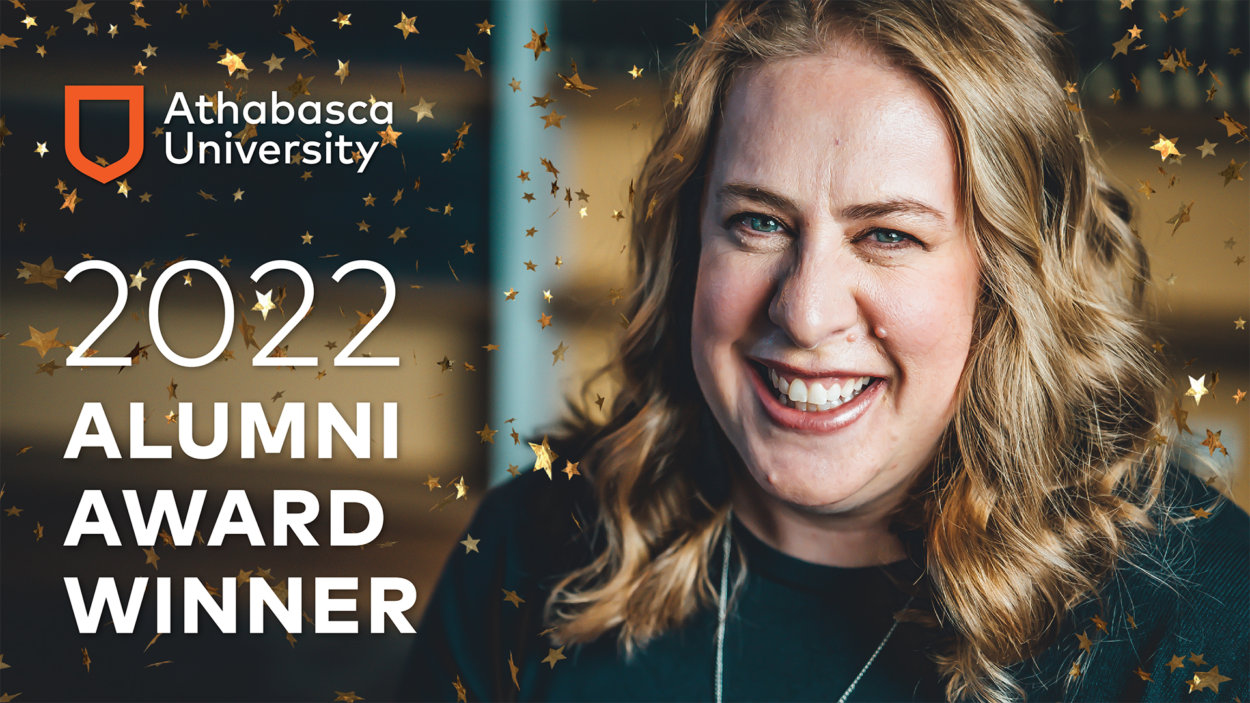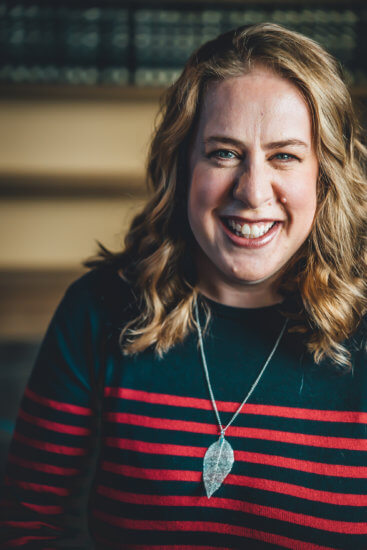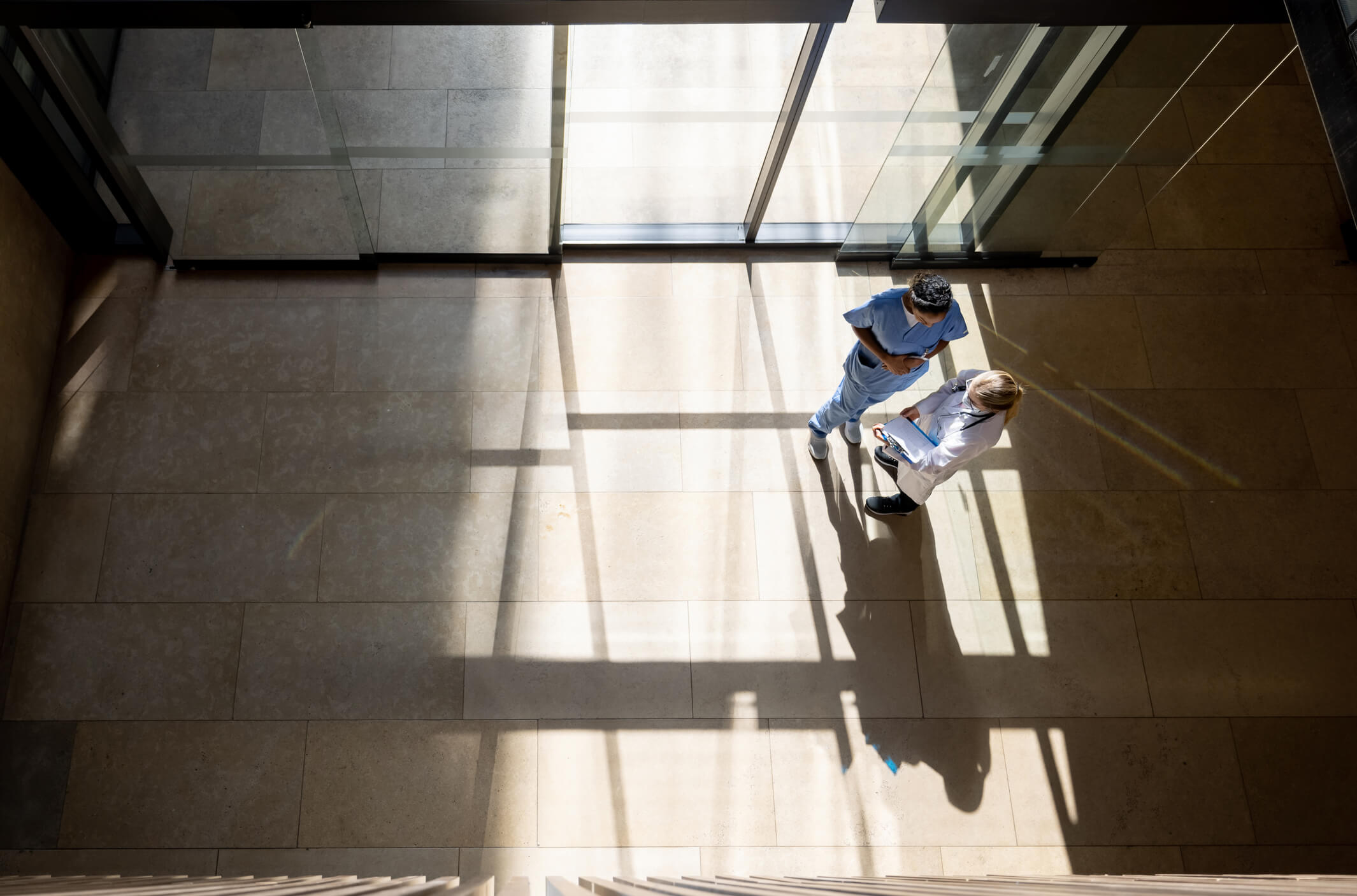Future Alumni Award winner plans to transform health-care system


Athabasca University alum Julia Cornester, the winner of the 2022 Future Alumni Award, hopes to move into health-care leadership roles to make changes at the policy level
Julia Cornester (Master of Nursing ’22) was driven to help patients on a greater scale than a single nurse can accomplish in a conventional role.
That’s what motivated Athabasca University’s 2022 Future Alumni Award winner to pursue leadership in her field, after more than decade working in pediatric emergency rooms, neonatal intensive care units, and public health. And she said the decision came down to one conversation after a traumatic experience with a patient she couldn’t help.
“Somebody came in and she was going to give her child an organ for transplant, because he was unwell. And he wasn’t able to get that organ transplant because she had a communicable disease that we don’t routinely immunize for here in Canada,” she said.
Cornester spoke with her husband about the experience, and he asked what she would do about it. She had an answer: earn a master’s degree and become a leader.
She said she is already putting her leadership-focused Master of Nursing to work in a new role in Calgary developing health-care policy, so she is doing exactly what she set out to do.
“Since I graduated, I’ve had the opportunity already to change policy and to drive change in that way,” she said. “So, it wasn’t just a pipe dream, it actually made a difference.”
I started to see, as you do over time, these patterns, where the decisions made at the higher level weren’t necessarily improving the lives of my patients. Julia Cornester, 2022 Future Alumni Award winner
Driven to help people
Cornester’s interests leaned toward a career helping people in the medical field. After high school she went to Douglas College then to Simon Fraser University where she earned a degree with a double major in kinesiology and psychology. Meanwhile she worked at a movie theatre and as a lifeguard to help pay the bills.
She completed a nursing degree from BCIT in 2008, and life got busy: within a year she graduated, her husband graduated, they moved to Calgary, Alta., and their first child was born.
Over the next several years, while working in frontline care roles, Cornester said she felt she wasn’t having the kind of impact she wanted to have.
“I was watching people come in, helping families one at a time, helping individuals one at a time, and helping infants one at a time,” she said. “I started to see, as you do over time, these patterns, where the decisions made at the higher level weren’t necessarily improving the lives of my patients.”

A passion for volunteering
It’s not only in her professional life that Cornester is driven to help more and more people; she has a long history of volunteering with organizations including the Girl Guides, her children’s schools, the Calgary Jewish Community Centre, and the Athabasca University Graduate Students Association, of which she was president in 2021.
Her volunteer work is mainly focused right now on the groups and activities her children are involved with—not just because she wants them to have the best possible experience, but because she also wants to instill in them an appreciation of the value of volunteerism.
Cornester explained her philosophy toward service is that the most important thing to do is to show up and to keep moving forward making incremental progress every day.
“I sit on the edge of my bed in the morning and I think about how, by the end of the day, I’m going to be a better person closer to my goals,” she said. “That’s it. How am I, myself, closer to what I set out to do?”
She said every bottle you pick up at a bottle drive, every piece of wood cut for a Girl Guides campfire, every time you vote to approve the minutes of the last board meeting, those things all add up every day to create positive impacts in the world around you.
Completing a degree one assignment at a time
Cornester said she brought this same attitude to her coursework at AU—every reading, every assignment, every course brought her closer to the goal she set out for herself.
And it wasn’t always easy. She had a newborn when she began her degree, which is incredibly demanding even if you’re not trying to study full time. But she found the course structure at AU allowed her the flexibility to bite off one piece at a time when she was able.
“My youngest was 2 months old when I was writing exams. He would get up to nurse, and if I felt well enough, I would write my exams at 2 or 3 in the morning, and it didn’t matter because it was online and it was scheduled for that day,” she said. “It made a huge difference in my ability to succeed because it was always available.”

Planning for health-care transformation
Taking it one step, one piece, one policy at a time is what Cornester intends to do as she advances in her career. And she makes no bones about it—she wants to see large-scale transformational change in Canada’s health-care system.
“I want a Canada where everybody has equal access to health care,” she said. “And that they feel like they have a right to be cared for, not based on where they came from, or what part of Canada they live in, or how much money they have.”
She said this is especially lacking right now when it comes to preventative care—preventative care options aren’t always accessible or affordable for people in the current system. She said this can have a cascade effect, where folks end up in doctors’ office and emergency rooms with things that could have been prevented if patients had better access to preventative care. For example, if a parent cannot access basic child safety information, such as proper seatbelt use, helmet use, or safe sleeping, it’s more like those children will need a trip to the emergency room.
Cornester also speaks of her passion for looking at basic necessities through a health-care lens. She pointed to communities in Canada—especially Northern and other remote communities, where clean water and adequate housing aren’t necessarily something people can take for granted.
Combined with her goal of increasing access to basic necessities, she said she also hopes to see change whereby all Canadians, regardless of their physical location, have access to high-quality primary care. She said she hopes to use her AU degree to keep pushing on these issues as she moves into progressively more responsible leadership roles.
Those are the things I hope to accomplish in the coming years. It may be a lofty goal, but it’s one I am committed to,” she said. “And again, I don’t think I can do it all at once. I think it’s the same as every other aspect, we just get up, set a goal and work toward it.”